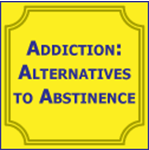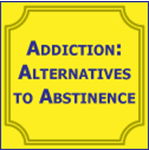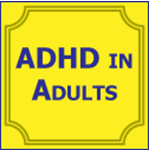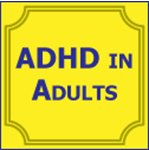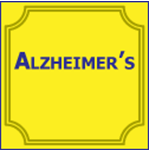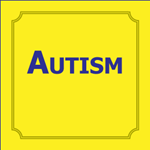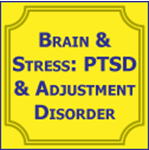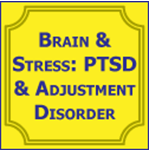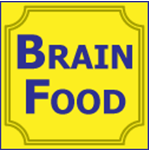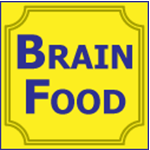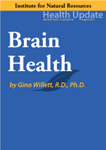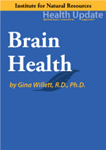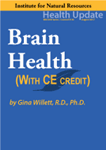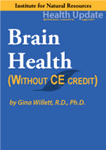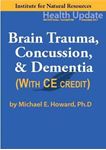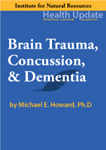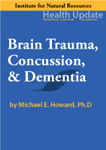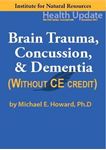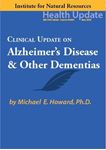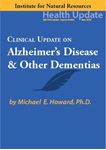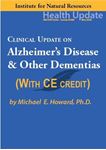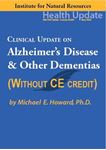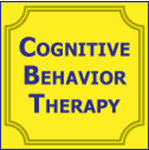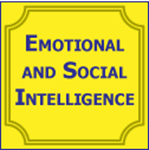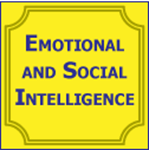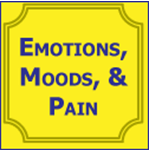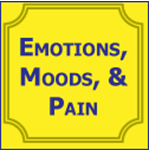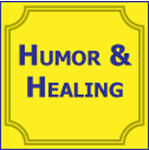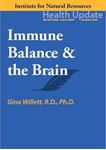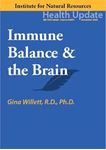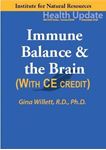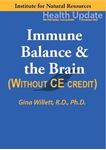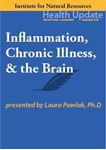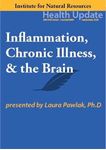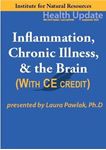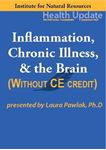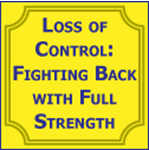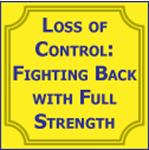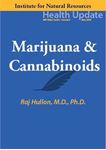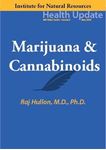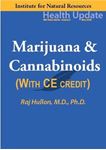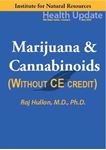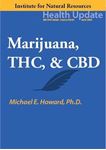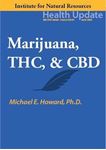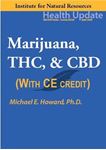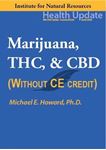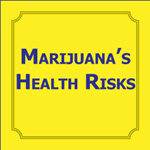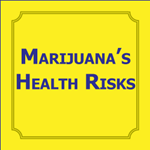You have no items in your shopping cart.
Brain Science
Addiction: Alternatives to Abstinence
Identifies the three major treatment models for addictive behaviors and a brief history of each: (a) the moral model, (b) the medical model, (c) the harm-reduction model. Describes the most recent research on the effectiveness of abstinence and harm-reduction addiction treatment programs and who each approach is best suited for. Lists protective behavioral strategies (PBS) used in moderating alcohol use among college students. Identifies the risk factors for “overdose” and list the strategies for prevention. Describes approaches to treating opioid dependence and the benefits and drawbacks of each.
$30.00
Addiction: Alternatives to Abstinence - Ebooklet
Identifies the three major treatment models for addictive behaviors and a brief history of each: (a) the moral model, (b) the medical model, (c) the harm-reduction model. Describes the most recent research on the effectiveness of abstinence and harm-reduction addiction treatment programs and who each approach is best suited for. Lists protective behavioral strategies (PBS) used in moderating alcohol use among college students. Identifies the risk factors for “overdose” and list the strategies for prevention. Describes approaches to treating opioid dependence and the benefits and drawbacks of each.
$25.00
ADHD In Adults
Identifies the rates of incidence and essentials of diagnosis of Attention Deficit Hyperactivity Disorder. Discusses the issues and controversies in diagnosis of adult ADHD. Describes the clinical essentials of differential diagnosis of ADHD in adults and presentations of other disorders with similar core symptoms. Identiies medications (stimulants and non-stimulants) that may be used in pharmacological management of ADHD in the adult population. Discusses the recent developments in the field of non-stimulant medications for adult ADHD, including cholinergic drugs and atypical antidepressants.
$30.00
ADHD In Adults - Ebooklet
Identifies the rates of incidence and essentials of diagnosis of Attention Deficit Hyperactivity Disorder. Discusses the issues and controversies in diagnosis of adult ADHD. Describes the clinical essentials of differential diagnosis of ADHD in adults and presentations of other disorders with similar core symptoms. Identiies medications (stimulants and non-stimulants) that may be used in pharmacological management of ADHD in the adult population. Discusses the recent developments in the field of non-stimulant medications for adult ADHD, including cholinergic drugs and atypical antidepressants.
$25.00
Alzheimer's
Describes Alzheimer’s disease. Identifies the 10 warning signs of Alzheimer’s disease. Explains the benefits of early diagnosis of Alzheimer’s disease. Enumerates the goals of Alzheimer’s treatment.
$30.00
Autism - 3 Hours
Describes the differences between the previous Diagnostic and Statistical Manual of Mental Disorders (DSM-IV), and the current one (DSM-5) in terms of how autism, autism spectrum disorder (ASD) and related disorders are viewed and diagnosed. Identifies the physiological, familial, and psychological issues in the clinical diagnosis of autism spectrum disorder. Identifies the issues of toxicity from heavy metal (mercury, lead) and other pathogenic factors in the development of autism spectrum disorder. Identifies medications used in management of various clinical resentations and comorbidities of autism spectrum disorder. Discusses appropriate nonpharmacological (general health, psychological, and behavioral) approaches to the treatment of autism spectrum disorder.
$30.00
Brain & Stress: PTSD & Adjustment Disorder
Explains the principles of diagnosis and differential diagnosis of Adjustment Disorder, the controversy that surrounds its classification, and its proper place in the hierarchy of psychiatric disorders. Identifies helpful strategies for patients with Adjustment Disorder. Outlines the issues of diagnosis and management of Post-Traumatic Stress Disorder. Describes Shared Psychotic Disorder and its diagnosis and treatment. Describes ways to cope with stress and recommends appropriate coping strategies to patients.
$30.00
Brain & Stress: PTSD & Adjustment Disorder - Ebooklet
Explains the principles of diagnosis and differential diagnosis of Adjustment Disorder, the controversy that surrounds its classification, and its proper place in the hierarchy of psychiatric disorders. Identifies helpful strategies for patients with Adjustment Disorder. Outlines the issues of diagnosis and management of Post-Traumatic Stress Disorder. Describes Shared Psychotic Disorder and its diagnosis and treatment. Describes ways to cope with stress and recommends appropriate coping strategies to patients.
$25.00
Brain Food
Discusses how foods and vitamins may improve memory and brain function. Describes how the DASH and Mediterranean diets may play a key role in brain health. Explains how food choices and supplements may play a role in Alzheimer’s disease and brain aging. Describes an optimal diet for brain health.
$30.00
Brain Food - Ebooklet
Discusses how foods and vitamins may improve memory and brain function. Describes how the DASH and Mediterranean diets may play a key role in brain health. Explains how food choices and supplements may play a role in Alzheimer’s disease and brain aging. Describes an optimal diet for brain health.
$25.00
Brain Health - DVD - 6 hours (w/Home-study exam)
The course “Brain Health: Mood, Metabolism and Cognition” provides an overview of key factors that can improve mental health, as well as to ensure cognitive health. This course includes a discussion of: (1) the importance of stress management, (2) physical activity, (3) weight management, (4) early diagnosis and proper management of diabetes and pre-diabetes, (5) key dietary factors to “defend the castle”, including the concept of “nutritional psychiatry”, (6) ways to improve gut health so as to improve brain health, (7) proper sleep hygiene, (8) the importance of oral health, and, finally, (9) how to incorporate some of the characteristics of our ancestors’ lifestyle (i.e., address our modern “Paleo-Deficit disorder).
Health professionals who complete this course will gain a much fuller understanding of the factors that impact brain health, as well as a range of techniques to help themselves, and their patients/clients, improve/preserve cognitive function and ensure positive emotional and mental health.
$83.00
Brain Health - DVD only *NO CE - 6 hours
The course “Brain Health: Mood, Metabolism and Cognition” provides an overview of key factors that can improve mental health, as well as to ensure cognitive health. This course includes a discussion of: (1) the importance of stress management, (2) physical activity, (3) weight management, (4) early diagnosis and proper management of diabetes and pre-diabetes, (5) key dietary factors to “defend the castle”, including the concept of “nutritional psychiatry”, (6) ways to improve gut health so as to improve brain health, (7) proper sleep hygiene, (8) the importance of oral health, and, finally, (9) how to incorporate some of the characteristics of our ancestors’ lifestyle (i.e., address our modern “Paleo-Deficit disorder).
Health professionals who complete this course will gain a much fuller understanding of the factors that impact brain health, as well as a range of techniques to help themselves, and their patients/clients, improve/preserve cognitive function and ensure positive emotional and mental health.
$69.00
Brain Health - Streaming Video - 6 hours (w/Home-study exam)
The course “Brain Health: Mood, Metabolism and Cognition” provides an overview of key factors that can improve mental health, as well as to ensure cognitive health. This course includes a discussion of: (1) the importance of stress management, (2) physical activity, (3) weight management, (4) early diagnosis and proper management of diabetes and pre-diabetes, (5) key dietary factors to “defend the castle”, including the concept of “nutritional psychiatry”, (6) ways to improve gut health so as to improve brain health, (7) proper sleep hygiene, (8) the importance of oral health, and, finally, (9) how to incorporate some of the characteristics of our ancestors’ lifestyle (i.e., address our modern “Paleo-Deficit disorder).
Health professionals who complete this course will gain a much fuller understanding of the factors that impact brain health, as well as a range of techniques to help themselves, and their patients/clients, improve/preserve cognitive function and ensure positive emotional and mental health.
$83.00
Brain Health - Streaming Video only *NO CE - 6 hours
The course “Brain Health: Mood, Metabolism and Cognition” provides an overview of key factors that can improve mental health, as well as to ensure cognitive health. This course includes a discussion of: (1) the importance of stress management, (2) physical activity, (3) weight management, (4) early diagnosis and proper management of diabetes and pre-diabetes, (5) key dietary factors to “defend the castle”, including the concept of “nutritional psychiatry”, (6) ways to improve gut health so as to improve brain health, (7) proper sleep hygiene, (8) the importance of oral health, and, finally, (9) how to incorporate some of the characteristics of our ancestors’ lifestyle (i.e., address our modern “Paleo-Deficit disorder).
Health professionals who complete this course will gain a much fuller understanding of the factors that impact brain health, as well as a range of techniques to help themselves, and their patients/clients, improve/preserve cognitive function and ensure positive emotional and mental health.
$69.00
Brain Trauma, Concussion, & Dementia - 6 Hours - Streaming Video (w/Home-study exam)
Describes the brain structures and functions that are most vulnerable to trauma. Outlines the major steps in assessing patients with brain trauma and predicting disability. Discusses key clinical features of concussions, penetrating head injuries, and blast injuries. Describes the relationship between brain trauma and dementing illness such as Alzheimer’s and chronic traumatic encephalopathy. Outlines the rehabilitation strategies most likely to improve outcomes in patients with brain trauma. Discusses the practical steps to prevent brain trauma from motor vehicle accidents, falls, and sports. Describes how the information in this course can be utilized to improve patient care and patient outcomes. Describes for this course, the implications for nursing, dentistry, mental health, and other health professions.
$83.00
Brain Trauma, Concussion, & Dementia - DVD - 6 Hours (w/Home-study exam)
Describes the brain structures and functions that are most vulnerable to trauma. Outlines the major steps in assessing patients with brain trauma and predicting disability. Discusses key clinical features of concussions, penetrating head injuries, and blast injuries. Describes the relationship between brain trauma and dementing illness such as Alzheimer’s and chronic traumatic encephalopathy. Outlines the rehabilitation strategies most likely to improve outcomes in patients with brain trauma. Discusses the practical steps to prevent brain trauma from motor vehicle accidents, falls, and sports. Describes how the information in this course can be utilized to improve patient care and patient outcomes. Describes for this course, the implications for nursing, dentistry, mental health, and other health professions.
$83.00
Brain Trauma, Concussion, & Dementia - DVD only *NO CE - 6 hours
Describes the brain structures and functions that are most vulnerable to trauma. Outlines the major steps in assessing patients with brain trauma and predicting disability. Discusses key clinical features of concussions, penetrating head injuries, and blast injuries. Describes the relationship between brain trauma and dementing illness such as Alzheimer’s and chronic traumatic encephalopathy. Outlines the rehabilitation strategies most likely to improve outcomes in patients with brain trauma. Discusses the practical steps to prevent brain trauma from motor vehicle accidents, falls, and sports. Describes how the information in this course can be utilized to improve patient care and patient outcomes. Describes for this course, the implications for nursing, dentistry, mental health, and other health professions.
$69.00
Brain Trauma, Concussion, & Dementia - Streaming Video only *NO CE - 6 hours
Describes the brain structures and functions that are most vulnerable to trauma. Outlines the major steps in assessing patients with brain trauma and predicting disability. Discusses key clinical features of concussions, penetrating head injuries, and blast injuries. Describes the relationship between brain trauma and dementing illness such as Alzheimer’s and chronic traumatic encephalopathy. Outlines the rehabilitation strategies most likely to improve outcomes in patients with brain trauma. Discusses the practical steps to prevent brain trauma from motor vehicle accidents, falls, and sports. Describes how the information in this course can be utilized to improve patient care and patient outcomes. Describes for this course, the implications for nursing, dentistry, mental health, and other health professions.
$69.00
Clinical Update on Alzheimer's Disease & Other Dementias - DVD - 6 Hours (w/home-study exam)
Describes the differences between normal and abnormal brain aging. Lists measures to preserve brain function and reduce the risk for cognitive decline. Defines dementia and describe common dementia syndromes. Describes the major characteristics of and treatments for Alzheimer’s disease. Lists medications and common clinical conditions that can cause dementia-like symptoms. Describes how the information in this course can be utilized to improve patient care and patient outcomes. Describes for this course, the implications for nursing, dentistry, mental health, and other health care professions.
$83.00
Clinical Update on Alzheimer's Disease & Other Dementias - DVD Only *NO CE - 6 hours
Describes the differences between normal and abnormal brain aging. Lists measures to preserve brain function and reduce the risk for cognitive decline. Defines dementia and describe common dementia syndromes. Describes the major characteristics of and treatments for Alzheimer’s disease. Lists medications and common clinical conditions that can cause dementia-like symptoms. Describes how the information in this course can be utilized to improve patient care and patient outcomes. Describes for this course, the implications for nursing, dentistry, mental health, and other health care professions.
$69.00
Clinical Update on Alzheimer's Disease & Other Dementias - Streaming Video - 6 Hours (w/Home-study exam)
Describes the differences between normal and abnormal brain aging. Lists measures to preserve brain function and reduce the risk for cognitive decline. Defines dementia and describe common dementia syndromes. Describes the major characteristics of and treatments for Alzheimer’s disease. Lists medications and common clinical conditions that can cause dementia-like symptoms. Describes how the information in this course can be utilized to improve patient care and patient outcomes. Describes for this course, the implications for nursing, dentistry, mental health, and other health care professions.
$83.00
Clinical Update on Alzheimer's Disease & Other Dementias - Streaming Video Only *NO CE - 6 hours
Describes the differences between normal and abnormal brain aging. Lists measures to preserve brain function and reduce the risk for cognitive decline. Defines dementia and describe common dementia syndromes. Describes the major characteristics of and treatments for Alzheimer’s disease. Lists medications and common clinical conditions that can cause dementia-like symptoms. Describes how the information in this course can be utilized to improve patient care and patient outcomes. Describes for this course, the implications for nursing, dentistry, mental health, and other health care professions.
$69.00
Cognitive Behavior Therapy
Identifies the major components of cognitive behavioral therapy and the causative relationship between environmental events, thoughts, emotions, and behavior. Lists the common types of flawed and irrational beliefs that create depression, anxiety, and stress. Describes the “ABC” process of converting irrational thinking into rational thinking. Describes cognitive-behavioral treatment strategies for depression and anxiety. Defines “allostasis” and “allostatic load” aspects of stress and describe the “Stress Inoculation Training” approach to stress management.
$30.00
Emotional & Social Intelligence
Explains the concept of emotional intelligence. Describes the relationship between emotions and the brain. Outlines how to use emotional intelligence to reduce negative moods. Explains the concept of social intelligence and its components. Identifies the neural circuitry underlying interpersonal behavior. Describes educational programs designed to heighten emotional and social intelligence.
$30.00
Emotional & Social Intelligence - Ebooklet
Explains the concept of emotional intelligence. Describes the relationship between emotions and the brain. Outlines how to use emotional intelligence to reduce negative moods. Explains the concept of social intelligence and its components. Identifies the neural circuitry underlying interpersonal behavior. Describes educational programs designed to heighten emotional and social intelligence.
$25.00
Emotions, Moods, & Pain
Lists and describe the six basic emotions that have unique facial expressions. Explains the difference between emotions and moods. Discusses the relationship between emotions, moods, and pain. Identifies brain structures and neurochemicals that play a role in both moods and pain. Discusses the relationship of pain to both acute stress and chronic stress. Lists the similarities between stress management and pain management. Identifies the similar brain areas involved in both physical and emotional pain. Explains the interactions between anxiety disorders, depression, and pain. Discusses cognitive behavioral therapy and its role in pain management.
$30.00
Emotions, Moods, & Pain - Ebooklet
Lists and describe the six basic emotions that have unique facial expressions. Explains the difference between emotions and moods. Discusses the relationship between emotions, moods, and pain. Identifies brain structures and neurochemicals that play a role in both moods and pain. Discusses the relationship of pain to both acute stress and chronic stress. Lists the similarities between stress management and pain management. Identifies the similar brain areas involved in both physical and emotional pain. Explains the interactions between anxiety disorders, depression, and pain. Discusses cognitive behavioral therapy and its role in pain management.
$25.00
Humor & Healing
Describes the different definitions of humor. Identifies the various theories of humor. Discusses the physiology and therapeutic effects of laughter. Discusses the use of humor in health care settings and the role of humor for health care professionals. Defines the relationship between children and humor and the elderly and humor. Identifies some strategies for adding humor to health care practices.
$30.00
Immune Balance & the Brain - DVD - 6 Hours (w/Home-study Exam)
Describes components of the immune system and principles of normal immune function. Reviews the clinical features of common autoimmune, allergic and inflammatory conditions. Explains potential immune factors that may contribute to depression and other psychiatric disorders. Describes the link between poor oral health and immune dysfunction. Lists the dietary, pharmacologic, and lifestyle changes that may help balance immune function. Describes how the information in this course can be utilized to improve patient care and patient outcomes. Describes, for this course, the implications for dentistry, mental health, nursing, and other healthcare professions.
$83.00
Immune Balance & the Brain - DVD only *NO CE - 6 hours
Describes components of the immune system and principles of normal immune function. Reviews the clinical features of common autoimmune, allergic and inflammatory conditions. Explains potential immune factors that may contribute to depression and other psychiatric disorders. Describes the link between poor oral health and immune dysfunction. Lists the dietary, pharmacologic, and lifestyle changes that may help balance immune function. Describes how the information in this course can be utilized to improve patient care and patient outcomes. Describes, for this course, the implications for dentistry, mental health, nursing, and other healthcare professions.
$69.00
Immune Balance & the Brain - Streaming Video - 6 Hours (w/Home-study Exam)
Describes components of the immune system and principles of normal immune function. Reviews the clinical features of common autoimmune, allergic and inflammatory conditions. Explains potential immune factors that may contribute to depression and other psychiatric disorders. Describes the link between poor oral health and immune dysfunction. Lists the dietary, pharmacologic, and lifestyle changes that may help balance immune function. Describes how the information in this course can be utilized to improve patient care and patient outcomes. Describes, for this course, the implications for dentistry, mental health, nursing, and other healthcare professions.
$83.00
Immune Balance & the Brain - Streaming Video only *NO CE - 6 hours
Describes components of the immune system and principles of normal immune function. Reviews the clinical features of common autoimmune, allergic and inflammatory conditions. Explains potential immune factors that may contribute to depression and other psychiatric disorders. Describes the link between poor oral health and immune dysfunction. Lists the dietary, pharmacologic, and lifestyle changes that may help balance immune function. Describes how the information in this course can be utilized to improve patient care and patient outcomes. Describes, for this course, the implications for dentistry, mental health, nursing, and other healthcare professions.
$69.00
Inflammation, Chronic Illness, & the Brain - DVD - 6 Hours (w/Home-study exam)
Identifies clinical signs & symptoms of inflammation. Describes the connections between inflammatory processes and chronic illness. Describes the role of inflammation in specific illnesses such as heart disease, COPD, diabetes, arthritis, and dementia. Lists practical strategies to reduce levels of inflammation in clinical practice. Explains the rationale for good dental prophylaxis and skin care in patients with chronic illness. Describes how the information in this course can be utilized to improve patient care and patient outcomes. Describes, for this course, the implications for dentistry, mental health, and other health professions.
$83.00
Inflammation, Chronic Illness, & the Brain - DVD only *NO CE - 6 hours
Identifies clinical signs & symptoms of inflammation. Describes the connections between inflammatory processes and chronic illness. Describes the role of inflammation in specific illnesses such as heart disease, COPD, diabetes, arthritis, and dementia. Lists practical strategies to reduce levels of inflammation in clinical practice. Explains the rationale for good dental prophylaxis and skin care in patients with chronic illness. Describes how the information in this course can be utilized to improve patient care and patient outcomes. Describes, for this course, the implications for dentistry, mental health, and other health professions.
$69.00
Inflammation, Chronic Illness, & the Brain - Streaming Video - 6 Hours (w/home-study credit)
Identifies clinical signs & symptoms of inflammation. Describes the connections between inflammatory processes and chronic illness. Describes the role of inflammation in specific illnesses such as heart disease, COPD, diabetes, arthritis, and dementia. Lists practical strategies to reduce levels of inflammation in clinical practice. Explains the rationale for good dental prophylaxis and skin care in patients with chronic illness. Describes how the information in this course can be utilized to improve patient care and patient outcomes. Describes, for this course, the implications for dentistry, mental health, and other health professions.
$83.00
Inflammation, Chronic Illness, & the Brain - Streaming Video only *NO CE - 6 hours
Identifies clinical signs & symptoms of inflammation. Describes the connections between inflammatory processes and chronic illness. Describes the role of inflammation in specific illnesses such as heart disease, COPD, diabetes, arthritis, and dementia. Lists practical strategies to reduce levels of inflammation in clinical practice. Explains the rationale for good dental prophylaxis and skin care in patients with chronic illness. Describes how the information in this course can be utilized to improve patient care and patient outcomes. Describes, for this course, the implications for dentistry, mental health, and other health professions.
$69.00
Loss of Control: Fighting Back with Full Strength
Describes the issues related to stress-induced feelings of loss of control, the physiological and psychological mechanisms behind these issues, and means of coping with them. Identifies grief-, aggression- and suicide-related trends in both society and the individual and identifies the neurobiologic mechanisms involved. Develops approaches to the rehabilitation of patients who have loss of control issues that lead to substance abuse. Identifies patients at risk for disorders that may be triggered by the feeling of loss of control.
$30.00
Loss of Control: Fighting Back with Full Strength - Ebooklet
Describes the issues related to stress-induced feelings of loss of control, the physiological and psychological mechanisms behind these issues, and means of coping with them. Identifies grief-, aggression- and suicide-related trends in both society and the individual and identifies the neurobiologic mechanisms involved. Develops approaches to the rehabilitation of patients who have loss of control issues that lead to substance abuse. Identifies patients at risk for disorders that may be triggered by the feeling of loss of control.
$25.00
Major Depression & Bipolar Disorders - 3rd edition
This book contains a synopsis of the genetic, biological, and psychological theories pertaining to bipolar spectrum disorders. An update of diagnostic considerations, assessment instruments, and evidence-based treatment techniques commonly employed in diagnosing, assessing, and treating bipolar spectrum disorderpatients is provided. The most recent literature is presented throughout the book concerning the appropriate data-based applications, outcomes, and limitations of the assessment and treatment procedures.
$35.00
Marijuana & Cannabinoids - DVD - 6 Hours (w/home-study exam)
Outlines and describe the difference between Marijuana, Synthetic Marijuana, Hemp and various marijuana alternatives. Identifies the difference between CBD, THC and Synthetic Cannabinoids. Reviews the current “Legal Status” of Cannabis and Synthetic Cannabinoids in America. Describes the troublesome new statistics concerning addiction and the increase in “Youth Vaping” of THC and CBD. Explains human Opioid Receptors, Opioid analgesia and compare this to the Human Endocannabinoid system. Reviews the real evidence (or lack thereof) for pain control and analgesia with THC, CBD, and marijuana alternatives. Lists the difference between THC Oil, Marijuana Oil, Cannabis Oil, Hash Oil, CBD Oil, and Hemp Oil. Reviews the critical Adverse Drug Reactions that occur with THC and CBD. Describes how the information in this course can be utilized to improve patient care and patient outcomes. Describes, for this course, the implications for dentistry, mental health, nursing, and other healthcare professions.
$83.00
Marijuana & Cannabinoids - DVD only *NO CE - 6 hours
Outlines and describe the difference between Marijuana, Synthetic Marijuana, Hemp and various marijuana alternatives. Identifies the difference between CBD, THC and Synthetic Cannabinoids. Reviews the current “Legal Status” of Cannabis and Synthetic Cannabinoids in America. Describes the troublesome new statistics concerning addiction and the increase in “Youth Vaping” of THC and CBD. Explains human Opioid Receptors, Opioid analgesia and compare this to the Human Endocannabinoid system. Reviews the real evidence (or lack thereof) for pain control and analgesia with THC, CBD, and marijuana alternatives. Lists the difference between THC Oil, Marijuana Oil, Cannabis Oil, Hash Oil, CBD Oil, and Hemp Oil. Reviews the critical Adverse Drug Reactions that occur with THC and CBD. Describes how the information in this course can be utilized to improve patient care and patient outcomes. Describes, for this course, the implications for dentistry, mental health, nursing, and other healthcare professions.
$69.00
Marijuana & Cannabinoids - Streaming Video (w/home-study)
Outlines and describe the difference between Marijuana, Synthetic Marijuana, Hemp and various marijuana alternatives. Identifies the difference between CBD, THC and Synthetic Cannabinoids. Reviews the current “Legal Status” of Cannabis and Synthetic Cannabinoids in America. Describes the troublesome new statistics concerning addiction and the increase in “Youth Vaping” of THC and CBD. Explains human Opioid Receptors, Opioid analgesia and compare this to the Human Endocannabinoid system. Reviews the real evidence (or lack thereof) for pain control and analgesia with THC, CBD, and marijuana alternatives. Lists the difference between THC Oil, Marijuana Oil, Cannabis Oil, Hash Oil, CBD Oil, and Hemp Oil. Reviews the critical Adverse Drug Reactions that occur with THC and CBD. Describes how the information in this course can be utilized to improve patient care and patient outcomes. Describes, for this course, the implications for dentistry, mental health, nursing, and other healthcare professions.
$83.00
Marijuana & Cannabinoids - Streaming Video only *NO CE - 6 hours
Outlines and describe the difference between Marijuana, Synthetic Marijuana, Hemp and various marijuana alternatives. Identifies the difference between CBD, THC and Synthetic Cannabinoids. Reviews the current “Legal Status” of Cannabis and Synthetic Cannabinoids in America. Describes the troublesome new statistics concerning addiction and the increase in “Youth Vaping” of THC and CBD. Explains human Opioid Receptors, Opioid analgesia and compare this to the Human Endocannabinoid system. Reviews the real evidence (or lack thereof) for pain control and analgesia with THC, CBD, and marijuana alternatives. Lists the difference between THC Oil, Marijuana Oil, Cannabis Oil, Hash Oil, CBD Oil, and Hemp Oil. Reviews the critical Adverse Drug Reactions that occur with THC and CBD. Describes how the information in this course can be utilized to improve patient care and patient outcomes. Describes, for this course, the implications for dentistry, mental health, nursing, and other healthcare professions.
$69.00
Marijuana, THC, & CBD - DVD - 6 Hours (w/home-study)
Describes the pharmacologic differences among cannabis (marijuana), THC and cannabinoids. Discusses the major legal issues surrounding THC at the Federal and State levels. Lists the physiologic and pathologic effects of marijuana (THC) including effects of long term use and potential harm to the adolescent brain. Describes FDA-approved uses for medical marijuana and possible clinical uses for cannabis in chronic pain patients. Explains the known dangers of vaping marijuana and development of EVALI (Lung Injury Due to E-Cigarettes and Vaping). Recognizes the signs and symptoms of acute marijuana intoxication. Discusses the myths and realities surrounding the explosion of CBD products across the country. Describes how the information in this course can be utilized to improve patient care and patient outcomes. Describes, for this course, the implications for dentistry, mental health, nursing, and other healthcare professions.
$83.00
Marijuana, THC, & CBD - DVD only *NO CE - 6 hours
Describes the pharmacologic differences among cannabis (marijuana), THC and cannabinoids. Discusses the major legal issues surrounding THC at the Federal and State levels. Lists the physiologic and pathologic effects of marijuana (THC) including effects of long term use and potential harm to the adolescent brain. Describes FDA-approved uses for medical marijuana and possible clinical uses for cannabis in chronic pain patients. Explains the known dangers of vaping marijuana and development of EVALI (Lung Injury Due to E-Cigarettes and Vaping). Recognizes the signs and symptoms of acute marijuana intoxication. Discusses the myths and realities surrounding the explosion of CBD products across the country. Describes how the information in this course can be utilized to improve patient care and patient outcomes. Describes, for this course, the implications for dentistry, mental health, nursing, and other healthcare professions.
$69.00
Marijuana, THC, & CBD - Streaming Video (w/home-study)
Describes the pharmacologic differences among cannabis (marijuana), THC and cannabinoids. Discusses the major legal issues surrounding THC at the Federal and State levels. Lists the physiologic and pathologic effects of marijuana (THC) including effects of long term use and potential harm to the adolescent brain. Describes FDA-approved uses for medical marijuana and possible clinical uses for cannabis in chronic pain patients. Explains the known dangers of vaping marijuana and development of EVALI (Lung Injury Due to E-Cigarettes and Vaping). Recognizes the signs and symptoms of acute marijuana intoxication. Discusses the myths and realities surrounding the explosion of CBD products across the country. Describes how the information in this course can be utilized to improve patient care and patient outcomes. Describes, for this course, the implications for dentistry, mental health, nursing, and other healthcare professions.
$83.00
Marijuana, THC, & CBD - Streaming Video only *NO CE - 6 hours
Describes the pharmacologic differences among cannabis (marijuana), THC and cannabinoids. Discusses the major legal issues surrounding THC at the Federal and State levels. Lists the physiologic and pathologic effects of marijuana (THC) including effects of long term use and potential harm to the adolescent brain. Describes FDA-approved uses for medical marijuana and possible clinical uses for cannabis in chronic pain patients. Explains the known dangers of vaping marijuana and development of EVALI (Lung Injury Due to E-Cigarettes and Vaping). Recognizes the signs and symptoms of acute marijuana intoxication. Discusses the myths and realities surrounding the explosion of CBD products across the country. Describes how the information in this course can be utilized to improve patient care and patient outcomes. Describes, for this course, the implications for dentistry, mental health, nursing, and other healthcare professions.
$69.00
Marijuana's Health Risks - 3rd edition
Discusses common negative health and mental health effects of highpotency cannabis products. Names medications with which cannabanoids may adversely interact. Describes ways exposure to THC can harm young people’s development and health. Lists the characteristics of cannabis hyperemesis syndrome. Identifies the health risks of using synthetic THC products.
$30.00
Marijuana's Health Risks - 3rd edition - Ebooklet
Discusses common negative health and mental health effects of highpotency cannabis products. Names medications with which cannabanoids may adversely interact. Describes ways exposure to THC can harm young people’s development and health. Lists the characteristics of cannabis hyperemesis syndrome. Identifies the health risks of using synthetic THC products.
$25.00
Meditation
Defines what meditation is. Identifies the benefits of meditation and the research supporting these benefits. Reviews the history of meditation and how it came to be popular in North America. Identifies the most popular meditation techniques. Discusses how to troubleshoot challenges that may arise while meditating.
$30.00

